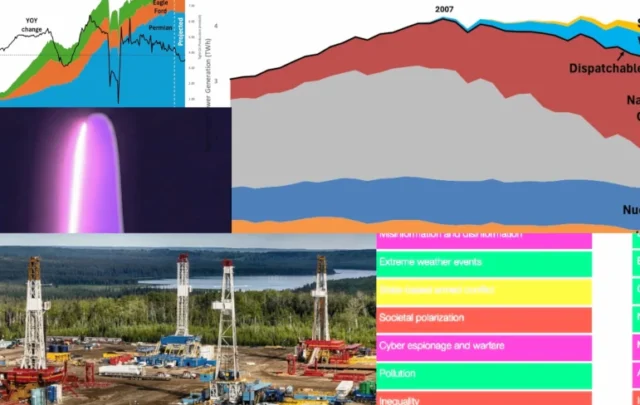Click on the headline (link) for the full text.
Many more articles are available through the Energy Bulletin homepage
Green ‘Czar’ Pushes Jobs, Community-Building (audio and text)
Morning Edition, National Public Radio (NPR)
Van Jones has been on a crusade to, in his words, “green the ghetto” by killing two birds with one stone: reducing poverty and saving the environment.
Recently appointed as President Obama’s special adviser for green jobs, enterprise and innovation, Jones now has an opportunity to implement his vision.
“I’ve been accused of being the green jobs czar — I consider myself to be the green jobs handyman,” Jones tells NPR’s Renee Montagne. “We’ve got about $40 billion in the recovery package that is targeted toward renewable energy, green-job training, energy efficiency, and part of my job is to help to coordinate getting all that money out into the economy, making jobs for people.”
(12 May 2009)
Obama’s Weird Idea of Auto Industry Rescue: Use Our Money to Build Car Factories Abroad
William Greider, The Nation
Can someone explain how outsourcing the auto industry is in our national interest?
—
So this is how the auto bailout will work. American taxpayers pump tens of billions into rescuing General Motors from bankruptcy. Then GM pays us back by shipping more jobs overseas — the equivalent of four assembly plants. The federal money will directly subsidize more imports from abroad, enabling GM to double its car production in Mexico, South Korea and China and selling the cars into the U.S. market.
Can someone explain how this is in our national interest? If that is the best deal Obama’s auto czars can come up with, then this angry taxpayer says: laissez-faire — let GM go down. Better to settle for bankruptcy court than provide public financing to further the destruction of U.S. manufacturing. The Obama administration has stumbled into the middle of the political train wreck known as globalization. The president is an orthodox free trader, notwithstanding his vague promises of reforming trade agreements. But the auto deal is not much of a recovery plan. It begins to look like another sly victory for the old order that has failed. The business plan the federal government is advancing for GM follows the free-trade model created by Robert Rubin and other Clintonistas during the 1990s. Do whatever you can to help U.S. multinationals succeed in the global trading system and assume this represents the national interest — never mind the damaging consequences for U.S. production and value-added jobs. That is how America became a debtor nation with its steadily weakening industrial base and stagnant wages. That condition became the predicate that led to financial crisis.
The president was probably hoping to evade the fight on globalization — at least for now — since he already has a lot of other large matters on his plate. His intervention on behalf of auto producers was billed as a temporary work-out — enough financial aid to get the companies through the collapse in consumer demand and refashion themselves for lean, mean production of smaller, cleaner cars. No one disputes that scores of thousands of jobs will evaporate in the downsizing.
But the unfolding facts demand full-throated debate and political resistance in Congress.
(12 May 2009)
Buying Brand Obama
Chris Hedges, TruthDig.com
Barack Obama is a brand. And the Obama brand is designed to make us feel good about our government while corporate overlords loot the Treasury, our elected officials continue to have their palms greased by armies of corporate lobbyists, our corporate media diverts us with gossip and trivia and our imperial wars expand in the Middle East. Brand Obama is about being happy consumers. We are entertained. We feel hopeful. We like our president. We believe he is like us. But like all branded products spun out from the manipulative world of corporate advertising, we are being duped into doing and supporting a lot of things that are not in our interest.
What, for all our faith and hope, has the Obama brand given us? His administration has spent, lent or guaranteed $12.8 trillion in taxpayer dollars to Wall Street and insolvent banks in a doomed effort to reinflate the bubble economy, a tactic that at best forestalls catastrophe and will leave us broke in a time of profound crisis.
… Celebrity culture has leeched into every aspect of our culture, including politics, to bequeath to us what Benjamin DeMott called “junk politics.” Junk politics does not demand justice or the reparation of rights. Junk politics personalizes and moralizes issues rather than clarifying them. “It’s impatient with articulated conflict, enthusiastic about America’s optimism and moral character, and heavily dependent on feel-your-pain language and gesture,” DeMott noted. The result of junk politics is that nothing changes – “meaning zero interruption in the processes and practices that strengthen existing, interlocking systems of socioeconomic advantage.” It redefines traditional values, tilting “courage toward braggadocio, sympathy toward mawkishness, humility toward self-disrespect, identification with ordinary citizens toward distrust of brains.”
… In an age of images and entertainment, in an age of instant emotional gratification, we do not seek reality. Reality is complicated. Reality is boring. We are incapable or unwilling to handle its confusion. We ask to be indulged and comforted by clichés, stereotypes and inspirational messages that tell us we can be whoever we seek to be, that we live in the greatest country on Earth, that we are endowed with superior moral and physical qualities, and that our future will always be glorious and prosperous, either because of our own attributes, or our national character, or because we are blessed by God. Reality is not accepted as an impediment to our desires. Reality does not make us feel good.
… The old production-oriented culture demanded what the historian Warren Susman termed character. The new consumption-oriented culture demands what he called personality. The shift in values is a shift from a fixed morality to the artifice of presentation. The old cultural values of thrift and moderation honored hard work, integrity and courage.
Chris Hedges writes a regular column for Truthdig.com. Hedges graduated from Harvard Divinity School and was for nearly two decades a foreign correspondent for The New York Times. He is the author of many books…
(4 May 2009)
Also at Common Dreams
Recommended by EB contributor Amanda Kovattana who writes:
A good critique of Obama being marketed as a feel good brand, but article was more notable for deeper insights at the end about how a consumer culture (as opposed to a production culture) falls into moral relativism and subsists entirely on media events where presentation is more important than moral.
BA:
I’m surprised at how many peak oilers have quickly come to a similar point of view as that in the article. Would you call this a leftist or a conservative viewpoint?
Kunstler: Decoupling From Reality
James Howard Kunstler, blog
… Much has been made in recent weeks of “animal spirits” and the “psychology of markets” in the hopes that mere attitudes might overcome the laws of thermodynamics. Math wizardry has now yielded to self-esteem building, an understandable sequence of events, since trafficking in the mutant spawn of Wall Street algorithms has ended up completely demoralizing the United States of America. Sadly, this is a little like subjecting a man who has just watched his house burn down to twelve segments of Oprah shows about the triumphal secrets of weight loss.
The Great Wish across America is to resume the life of comfort-and-convenience that seemed so nirvana-like just a few short years ago, when the very constellations of the heavens might have been renamed after heroic Atlanta realtors and Connecticut hedge fund warriors, and the boomer portfolios groaned with earnings, and millions of graying corporate salary mules dreamed of their approaching retirement to a satori of golf and Viagra, and the interior decorators grew so rich installing granite countertops that they could buy their own houses in the East Hampton, and every microcephalic parking valet in Las Vegas qualified for a bucket full of Ninja mortgages, and Lloyd Blankfein could dream of divorcing his wife to marry his cappuccino machine.
The choices now are stark and the kind of life on offer by the future is rather austere. The job of the current president, and the people who work with him, is to manage an epic contraction — let’s say, to land a very large, loaded defect-ridden airplane that has both run out of fuel and suffered grievous mechanical breakdown… and to bring down that vehicle in an unfamiliar country filled with angry savages. Sadly, the new president and his co-pilots just want to keep the plane up there, circling. The president’s viziers are working round-the-clock to come up with some way, some toggle-switch, that might turn off the laws of gravity (which are not unrelated to the laws of thermodynamics). But all they seem to be able to come up with are mumbled prayers that are pale imitations of the algorithms once concocted by the Wall Street engineers who designed the aircraft they’re riding in.
Well, that’s enough conceits and metaphors for today.
(11 May 2009)
Getting America Off Oil: The Oil Solutions Initiative
Cameron Burns, Rocky Mountain Institute
… RMI partnered with the Brookings Institution and created the Oil Solutions Initiative (OSI), a multi-pronged effort to use the strengths of all the plans without losing sight of the shared goal: reducing America’s dependence on oil.
RMI and Brookings then created a network which included representatives from all the groups with plans related to making the United States less oil dependent: the Alliance for Climate Protection, the Apollo Alliance, the Council on Competitiveness, the Energy Security Leadership Council, Andy Grove’s “Retrofit” Plan, the Institute for 21st Century Energy, the Massachusetts Institute of Technology, the National Commission on Energy Policy, the National Petroleum Council, NRDC, the Pickens Plan, Set America Free, Brookings, and RMI.
After initial interviews with representatives from each group and research into the various plans themselves, RMI and Brookings convened the collection of stakeholders, at Brookings’s Washington, D.C. facilities, during an Oil Solutions summit.
The December 18–19 event included additional experts from other areas related to oil. There were scientists, military officers, business leaders, environmentalists, and economists, among others. As part of the OSI work, RMI and Brookings split the challenge of reducing oil freedom dependence into the two areas of demand (use) and supply (fuel sources). On the demand side, OSI goals focus on reducing how much oil America uses in the transportation sector (in light and heavy vehicles, aviation, personal mobility, and “transit”); the supply side’s focus is on alternatives like biofuels, supporting electrified vehicles, and mobility powered by non-oil sources. To further refine the aims of the initiative, goals have both a short-term (2012) and long-term (2030) horizon.
The 2012 horizon was established in order to show the current administration and Washington legislators what can be achieved within the next four years—and without requiring major infrastructure change or technological innovation.
(6 May 2009)























